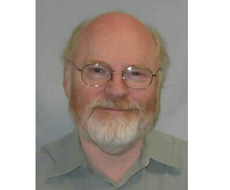The Team
C. Kit Harvel | Previous CRISM Project Manager

Where did you grow up?
I was born in Columbia, South Carolina, but because of my dad’s work, I ended up living in 5 states before I got to High School (South Carolina, North Carolina, California, New Jersey, and Virginia). I went to High School in McLean Virginia and then stayed in the area to go to Georgetown University in Washington, DC.
How did you get interested in space exploration?
My Dad taught me about the constellations and carried me out late one night when I was four to see an eclipse of the moon. As soon as I could read, I looked for and read all the books I could find about the planets. The first time I saw Mars I was in the fifth grade visiting New York City, and it was in the sky directly about the Empire State building. When I started high school, my Earth science teacher agreed to sponsor an astronomy club an encouraged me to join; during the next 4 years I had the opportunity to use and build many telescopes, explore the sky, and be amazed at all the things I could see there.
What’s your educational background?
I have a BS from Georgetown University, an MA from the University of South Florida, and a PhD from the University of Florida—all in Astronomy.
What are your hobbies?
Hiking; Skiing; Sailing; Gardening; Reading (History and Science Fiction)
What’s your job on CRISM?
As the project manager, my job was to ensure that the overall objectives of the CRISM project were met by helping all the other members of the team get their jobs done. Mostly, I helped other team members by arranging for them to have the resources (e.g. computers, software, office space) they needed to get their work done. The more I understand the work they are doing, the better I did my job.
What excites you about exploring Mars?
It is now possible to actually see features changing on the surface of Mars and in many cases that surface looks so much like parts of the Earth. The more we explore and learn, the closer we are to the day when people will be living there.
What advice would you give to someone like you who wants to get involved in space exploration?
You can get involved by making space exploration your profession or by making it your hobby, or maybe both! Learn all you can about science, engineering, and mathematics through formal training, books, the internet, and hands-on experience. Join an organization where you can meet other people interested in space exploration (check the web for local and national space exploration clubs). Most professional work in space exploration requires a college degree in a related technical area.
